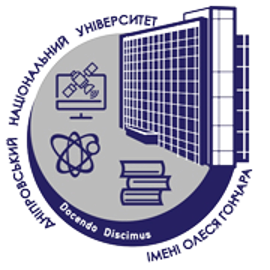Античність як ідеал і фактор формування інтелектуального ландшафту України другої половини ХVІІІ – початку ХІХ століття
DOI:
https://doi.org/10.15421/272319Анотація
Представлені й проаналізовані роль і місце античної інтелектуальної спадщини (художня література, міфологія, історичні твори, політичні та філософські трактати) у становленні інтелектуального ландшафту України часів пізнього Просвітництва. Метою роботи стало з’ясування способів засвоєння та інструменталізації культури Античності в українському інтелектуальному середовищі. Методологія дослідження спирається на підходи інтелектуальної історії, націлені на виявлення механізмів формування та структур інтелектуального ландшафту певних культурних ареалів. Виклад основного матеріалу націлений на репрезентацію процесу рецепції текстів доби Античності в духовно- культурному та суспільно- політичному просторі Лівобережної України. Виявлено алгоритми засвоєння античної спадщини: навчання у вітчизняних та іноземних закладах, формування власних бібліотек, ознайомлення з текстами античних авторів в оригіналі та через творчість європейських просвітників. Визначено кадровий потенціал українських перекладачів давньогрецьких та давньоримських творів, з’ясовано репертуар перекладів античних авторів та їхні тематичні пріоритети. Наголошено, що звернення до Античності обумовлено як загальноєвропейським культурним дискурсом доби Просвітництва, так і особливостями регіональної суспільної та соціально- економічної ситуації. Представники українські інтелектуальної еліти використовували сюжети, образи, стилістику Античності як інструмент для вироблення й обґрунтування стратегії і тактики захисту національних інтересів у процесі інтеграції до імперських структур. Висновок. Антична спадщина в другій половині XVIII – на початку ХІХ ст. стала важливим культурним ресурсом у формуванні інтелектуального ландшафту Лівобережної України. Це було обумовлено панівним культурним дискурсом Просвітництва, наявним кадровим потенціалом, суспільною та естетичною затребуваністю античної спадщини. Її патріотичний пафос активно використовувався для відстоювання особливого статусу Батьківщини у складі імперії, створення національного елітного соціокультурного простору. Класична спадщина стала ефективним засобом статусного позиціювання та інструментом кар’єрних стратегій освічених верств. Криза просвітницької парадигми на межі ХVIII–XIX ст. створила умови для переосмислення Античності в категоріях модерного часу («Енеїда» І. Котляревського). Її використання як важливого чинника інтелектуального ландшафту завершилося в добу зародження українського модерного етнічного проєкту.





